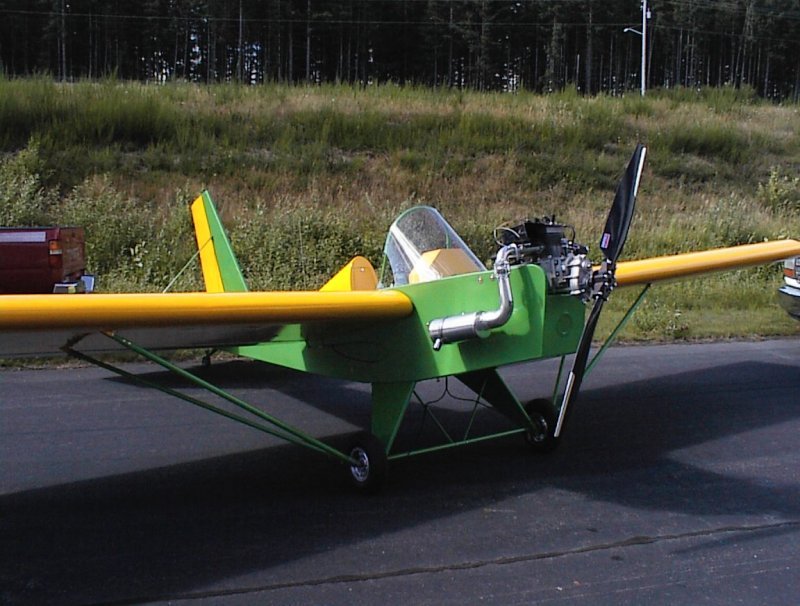
Lets Talk Powerplants!
Main Powerplant Options:
-

2-Stroke
2-stroke engines are lightweight, high-revving powerplants that have long been a favorite in ultralight and experimental aviation. Their simplicity and power-to-weight ratio make them ideal for builders focused on minimal airframe weight and sporty performance.
Pros:
Very lightweight – ideal for keeping aircraft within Part 103 limits
Simple design: fewer moving parts means easier maintenance
High power output for their weight
Widely supported with parts and tuning advice
Cons:
Louder and less fuel-efficient than 4-strokes
Typically require pre-mixed fuel or oil injection systems
Higher RPMs may lead to shorter engine life
More sensitive to carb tuning and atmospheric conditions
-

4-Stroke V-Twin
Modern V-Twin engines (like the HKS 700E or converted industrial V-Twins) offer a smooth, fuel-efficient alternative with decent torque at low RPMs. These engines strike a middle ground between the lightness of 2-strokes and the classic feel of VW conversions.
Pros:
Quieter operation and smoother vibration profile
More fuel-efficient than 2-strokes
Better torque at lower RPMs – smoother throttle response
Reliable with longer TBOs (Time Between Overhaul)
Cons:
Heavier than most 2-strokes
Slightly more complex to install and maintain
Fewer models available specifically built for aviation
May require custom mounts or reduction drives
-

VW- Engines
Volkswagen (VW) based conversions are classic 4-stroke engines, known for their reliability and nostalgic appeal. Often used in the 1550V V-MAX and similar models, they provide a strong combination of character, endurance, and reasonable horsepower.
Pros:
Proven and time-tested design
Excellent fuel economy
Smooth power delivery with strong torque
Readily available parts and builder support
Cons:
Heavier than most modern alternatives
Requires baffling and careful cooling setup
Not ideal for ultralight-class aircraft
More involved maintenance compared to 2-strokes


